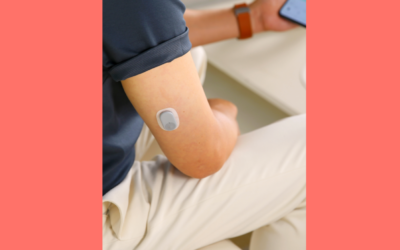By Maddie Tudor on February 21, 2023

Ashok is the newly elected President of NAPC, Vice President of the International Pharmacy Federation, previous President of the Royal Pharmaceutical Society and a NED for Oxford University Hospitals NHS Foundation Trust.
In this video, Ashok will touch upon how:
- We all carry responsibilities to work with our patients to enable them to get the best from the medicines they take.
- When it comes to prescribing, the shared decision-making sits between the ‘healthcare professional’ and the patient.
- We may see a ‘medicines referral pathway’ within the pharmacy, encouraging patients to see specialist prescribers.
We asked Selma Abed, Head of Medicines Optimisation here at Spirit Health, to expand on the ‘pharmacist role in ‘workforce’ that Ashok spoke about in the video and her key takeaways.

The pharmacist will see you now
Ashok spoke about the relationship between the patient and the healthcare professional (in this case, the prescriber). We asked Selma: What is the current reality between pharmacists and patients today, can there be shared-decision making?
“Pharmacists, by definition, are experts in medicine. They can give advice or intervene if they feel something is not in line with best practice.”
“On October 2019, NHS England introduced the NHS Community Pharmacist Consultation Service (CPCS). This service facilitated patients having same-day appointments with their community pharmacists for minor illnesses or to get an urgent supply of regular medicine.
Patients benefit from available services and more convenient treatment closer to their homes. During the pandemic, I saw increased pharmacist/patient interactions, as this was one of the few available avenues where people could see a healthcare professional relatively quickly. When the CPCS was launched, patients questioned why they had an appointment with their pharmacists, but now they look forward to it, as they know they will receive a thorough review of their medication.
Right now is a critical time for shared decision-making because we’re experiencing increased patient buy-in.”
A bigger workforce means bigger outreach
The transition into ICSs means workforce will evolve across the board. Within this episode, Ashok presented an exciting idea for a ‘medicines referral pathway’ within pharmacy. This new concept would change the way pharmacy would be delivered in the future.
Presently we are seeing changes to medicines optimisation programmes and rollouts, so we asked Selma: Are we already seeing a positive shift within the pharmacy role to tackle current workforce challenges?
“Within the ICSs, we have a more significant outreach; therefore, we have more collective pharmacists within primary, secondary and community care. We’re now proactively identifying where there are capacity challenges and how best to assign workforce to alleviate those pressures.”
“It’s early days, but this small step ensures we should see more shared skills and knowledge across the board. When it comes to capacity, we will have more trainees benefitting from a diverse experience which they, in turn, will learn and benefit from.”
The future is hybrid
Ashok spoke about empowering all team members so that in the future, patients benefit from the ‘continuity of caring as opposed to continuity of care’. This vision is a goal we feel is applicable across the board, so we asked Selma: How do we empower pharmacists?
“I think we can empower pharmacists and ensure patients receive the continuity of caring they expect simultaneously. Our role is to give our workforce opportunities, and currently, they want the flexibility to work within hybrid roles.”
“Hybrid working is a brilliant opportunity to tackle workforce challenges and give our teammates the experience they want across the board. Ideally, we should look at where there are pressing capacity challenges and how we can facilitate a hybrid role within these sectors.
The more bridges we build across our primary, secondary and community care will only benefit our patients. For example, if a patient has a review in practice, is there a touchpoint in community pharmacy where we can leverage better results? We can ensure patients receive the best care possible by looking at different touchpoints through collective communication and experience.”
We want to know your thoughts and views. Please comment on our Twitter posts @SpiritMedsOp to share your insights and reflection on episode two. Alternatively, you can email Selma Abed on Twitter or by email.
Have you missed an episode? Click on the links below to catch up:


